Transparent Targeted Public Distribution System
Description
The Targeted Public Distribution System (TPDS), budgeted at around Rs. 25,000 crore annually, is affected by targeting errors (both inclusion and exclusion errors), spurious beneficiaries and diversion. The success of TPDS depends largely on the ability of State Governments in identifying genuine poor families and putting in place an effective and efficient delivery system. To accomplish these objectives, the Food and Civil Supplies Department of the Uttar Pradesh Government launched this initiative. Under the project, the digitization of ration cards was carried out, provision of free SMS alerts to ration card holders on lifting of rations was made and dates for lifting and distribution of rations to card holders were fixed according to a roster. Already, around 119.63 lakhs ration cards have been uploaded and over 21.6 lakhs bogus ration cards have been cancelled. The details of the ration cards can be accessed by anyone on the departmental website. As a result, efficiency and effectiveness of operations has been achieved, greater transparency has strengthened the TPDS and better delivery ensured to the public. TPDS was initiated in 1997 as an important policy instrument designed to reduce hunger by delivering food grains at highly subsidized prices to the population below the poverty line. However, a performance evaluation of the TPDS conducted by the Planning Commission in 2005 found that about 58 per cent of the subsidized food grains issued from the central pool do not reach the BPL families. Moreover, due to faults in the execution of TDPS, one rupee of budgetary consumer subsidy is worth only 27 paise to the poor. It has been established with certainty that the adoption of technology rectifies the deficiencies and incorrect practices that plague the implementation of virtually all government welfare schemes. Although ICT may not be the answer for all maladies, yet, it can solve a great many problems, particularly those of pilferage and spurious beneficiaries as proven by this undertaking.
What we deliver
Empower people residing even in the far-flung areas of the state. Provide correct and timely information free-of-cost to ration card holders through sms alerts regarding lifting of food grains, kerosene oil, sugar and other essential commodities. Strengthen TPDS and ensure better delivery to the public. Weed out bogus ration cards and bring shadow cards in the open. Create a database of all ration cards in the state that is accessible by the citizens.
How is the project unique?
The project is definitely unique. Nowhere else has such a project been taken up and implemented on such a large scale and that too in such a short period. Uttar Pradesh is the first state in the entire country to have actually created such a huge database of all ration cards. Already 119.63 lakhs ration cards and over 95% of AAY and BPL ration cards have been uploaded. This is a population base of 519 lakhs, which is more than the total population of a number of states.
Roadmap
A synergetic tie-up with the Unique Identification Authority of India (UIDAI) is the next logical step. The UIDAI will provide duplicate detection infrastructure to the PDS program. It can also assist in the development of special tools to assist in the assessment of eligibility of applicants. The UID program has the specific objective of creating a unique database of residents in India and will put together the best technologies and processes for this purpose. UID can share the burden of PDS reform by assisting in the positive identification of unique individuals and families. This can lead to a high-quality beneficiary database without duplicate and ghost cards, improving the targeting of benefits. The efficiency improvements in the PDS system will make it one of the best-run pro-poor schemes in the country.
Contact
Food Commissioner’s Office
Food & Civil Supplies Department, 2nd Floor
Lucknow, India
226001
URL/Website – http://fcs.up.nic.in




